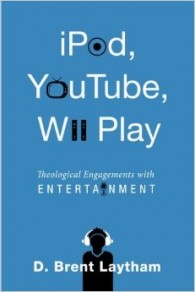It’s showtime, 24/7…

Boredom is the all-encompassing name we give our discontent in this late modern age. Boredom gained prominence as a social condition in the 18th century when the word was invented, according to Patricia Meyer Spacks, author of Boredom: The Literary History of a State of Mind.
She points to several social conditions that contributed to the rise of this new cultural condition. The industrial revolution made leisure time available. An increasing emphasis on individual rights included a prominent place for the “right to happiness.” A focus on inner experience increased concern for what we lack, drawing attention to our emptiness.
Secularization was also a significant factor. The declining importance of Christianity left a void—without God, the universe became less interesting. “Boredom can be usefully understood as faith’s opposite.”
[T]he complaint of boredom … violates the Christian ethical imperatives of faith and good works, which together fruitfully occupy mind and body and improve the hope of salvation. The bored man, insisting that nothing can interest him, denies the discipline of faith and the obligation of occupation.
Dr. Spacks’ Boredom provides helpful historical context for thinking about our current preoccupation with entertainment. “These days,” writes Brent Laytham, “entertainment seems almost bigger than God.” Or put a bit differently, “In the twentieth century, entertainment became a cultural superpower.”
That has, inescapably, impacted Christian discipleship, though not always in the most obvious ways. Unlike so many authors that focus on the content or “message” of our entertainments, I write with the conviction that entertainment’s massive impact on us is rooted mostly in its mundane everydayness; in the way it shapes our subjectivities, affects our affections, cultures our choices, and permeates our possibilities. This power isn’t accidental; as a commercial enterprise, entertainment intends to shape patterns of thinking, feeling, and acting. And yet the cumulative effect of that shaping far exceeds what any entertainer, company, or industry intends. For disciples this matters precisely because following Jesus is a journey meant to transform how we think, feel, and act. Therefore, since entertainment and discipleship are both formational processes, we need to ask how a century’s journey from radio and silent cinema through the heyday of television to our brave new World Wide Web of entertainment possibilities has been shaping how we pray and praise, how we make disciples and decisions, how we feel and love, what we believe and hope.
This alone is sufficient reason for Christians to engage entertainment critically. Critical engagement does not mean a tirade against entertainment’s ills; its tone is not essentially negative, but investigative. Critical engagement asks what entertainment is, how it work, and what it means. We mostly haven’t asked such questions. … Most Christians don’t understand how pop culture “works” any better than we understand how an iPod or plasma TV works. That leaves us mostly focused on the smooth, inviting face of entertainment. Whether it is consuming the bits we like or rejecting the ones we don’t, either way we remain focused on surface at the expense of depth, on how things appear rather than how they are, on entertainment’s content instead of its conditioning structure and power. We need to be far more critical if we’re going to follow Jesus faithfully. …
[S]ince the business of entertainment is an “attention economy,” profiting only by the ongoing capture of our attention, competition continually expands and escalates. It expands to permeate every dimension of life with entertainment. Its relentless effort to monopolize our gaze habituates us to expect everything and everyone to be entertaining, which fosters in us an addiction to spectacle, an antipathy to boredom, and an anxiety that reality itself is boring. Entertainment must escalate and proliferate continuously because it is increasingly difficulty to capture and sustain attention in a supersaturated entertainment environment. To be seen or heard in the ever-escalating visual clutter and sonic din, and to capture and sustain attention, entertainments get faster, louder, and more extreme. This habituates us to be anxious about relevance, vulnerable to hype, and addicted to novelty. In a culture dominated by entertainment, the Christian calling to worship God in all things—which means first and foremost to attend to God in God’s own beauty, goodness, and truth—is considerably harder. …
Brent Laytham’s objective in iPod, YouTube, Wii Play: Theological Engagements with Entertainment is to neither bless nor bash entertainment. His project is to provide a “theological anthropology” that gives an “account of our humanity as created by God.”
So engaging entertainment theologically will require from us a consistent dialectical movement of refusing all that diminishes or denies our true humanity, while affirming all that expresses and enhances it.
In one sense, Laytham is building a theological foundation for what he calls the “wise counsel” of MIT professor Sherry Turkle, whom he quotes.
We have to love our technology enough to describe it accurately.
We have to love ourselves enough to confront technology’s true effects on us.
Sources and resources:
Alone Together: Why We Expect More from Technology and Less from Each Other, Sherry Turkle
iPod, YouTube, Wii Play: Theological Engagements with Entertainment, Brent Laytham
Boredom: The Literary History of a State of Mind, Patricia Meyer Spacks


 March 19, 2015
March 19, 2015 







Comments are closed.